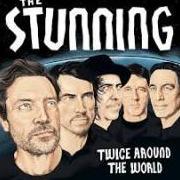-
Recently Browsing 0 members
- No registered users viewing this page.
-
Latest Activity
-
By Crazyfool01 · Posted
Doesn’t strike me as the best plan surely the best festival to get people interested in volunteering generally is Glastonbury . ? Just strikes me as they are struggling to fill that gap this year and this is a short term solution . But they make the plans not me 😂guess they’ll use this to plug gaps going forward ? And what about those signed up already do they get priority which won’t help shindig ? -
By CaledonianGonzo · Posted
West Holts could be mobbed all day after PJ Harvey, Michael Kiwanuka and Keane fail to attract ginormocrowds. -
Shindig clearly not selling out, but being bank holiday and they're clearly desperate would probably only take 2 days annual leave/sick days as you could probably arrive really late Wednesday.
-
Effing stacked. That Friday in particular. Never park at one stage for the day but if it was ever gonna happen it’ll be this year.
-
By thatTFBguy · Posted
Not strictly Tramliens related, but just seen Sea Girls new tour has them playing Octagon in September. Can we assume at this point O2 Academy is never re opening and the venue is permanently closed? Can't believe we've had zero updates since its "temporary" closure last September. At this point, I'm just assuming the whole place was built out of crumbling concrete.
-
-
Latest Festival News
-
Featured Products
-

Monthly GOLD Membership - eFestivals Ad-Free
2.49 GBP/month
-
-
Hot Topics
-
Latest Tourdates

















Recommended Posts